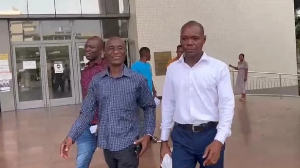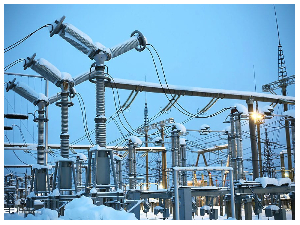The characteristics are the same. Immense revenue potential, different ethnic or tribal groups, an out-of-control hatred amongst those groups, and a weak political foundation combine to be a shared set of factors that foment instability or exploitation of the ruled by the rulers. Among the victims are Iraq, Angola, Nigeria, Zaire, South Africa, and others. While Ghana faces such a significant revenue potential, we can’t help but take a step back from all the euphoria and ask an obvious question: would Ghana be on that list?
The first vital acknowledgement Ghanaians need to make is the reality that 600 million barrels, while significant, is by no means vast enough to make us all rich overnight. Contextually, at 20 million in population, the oil find represents 30 barrels per citizen. With current prize hovering around $60, that represents $1,800 or 1,764 new Cedis each, which is well below our $2,700 per capita Gross Domestic Product (2006 estimate). Having said that, it is worthy to acknowledge that revenue from oil will provide much needed working capital to launch many of the nations development plans that are designed to take it to the aspired second world status by the year 2015.
But we must be extremely careful.
Proportionally to its size, Ghana has as many different tribal groups as any of the countries that have appeared helpless in curtailing tribal conflicts. Fortunately our first leader Osagyefo Dr. Kwame Nkrumah started us off on the right footing in this area. His vision and subsequent policy of mixing us up by posting students and leaders all across the country without regard to their tribal origin helped to render nationalist sentiments superior to tribal sentiments. Lately, however, certain misguided individuals would have us believe that we are more different than we are similar.
Here is a little exercise: take the time and list all the characteristics, factors, components, etc that are present in, say a Ga. Then compare them to the same list describing, say a Dagomba. You will find that as much as 90% of those factors are common in both individuals. Yet we highlight the 10% difference as though they are the most important features. Then we hate based on that. How smart is that? Would it not make sense to love nine times as much as we hate?
The government obviously cannot legislate to achieve love and understanding. But it can do something about it. Sometimes, it only takes shedding a spotlight on a problem to acknowledge its existence and to establish its level of priority. To this end, establishing something like an Agency for Tribal Harmony to, among other things, provide professional help for people with deeply rooted tribal sentiments may go a long way to, at the very minimum, curbing the growth of tribal hatred.
Some may abhor adding to an already big bureaucratic system. But tribalism, in my estimation, is as big a threat to Ghana’s national security as terrorism is to the United States with its open system. The Americans saw the need to establish the Department of Homeland Security to address the threat of terrorism. On the other hand, their failure to set up a body to address race relations has resulted in a worsening of that issue in spite of Civil Rights Laws.
On the political front, Ghana appears to be farther along with establishing strong foundations. The democratic process appears to be solidifying. Not even dire economic environment caused us to abandon the nation’s commitment to it. Thus, now that the prospects look better, and development plans may be financed more by revenues than by loans, it is hard to see us abandoning the democratic process now. It is encouraging to note that for the first time, development plans that were started under a previous administration were continued by the administration that followed it regardless of their political affiliation.
These are signs of political maturity. To its credit, the previous administration obviously designed plans that were of national interest. And to its credit, the administration that followed acknowledged it. That means Ghanaians can expect their governments to develop national interest plans, and for those plans to be carried out no matter which party is in government. And we all know a person with discipline and concrete plans does better with money from a lottery win than the one who did not have any such plans or discipline. Thus, Ghana’s political discipline will play a huge role in managing her new natural resource.
Ghanaians are quick to point out that their country is one of a selected few in Africa that has never experienced a civil war. They fail, however, to add that it is in fact one country with resources that have never been in critical demand by the rest of the world. Gold and Cocoa play a miniscule role in the daily lives of citizens around the world, and they have accordingly paid little for it. That means revenue generated from exports has not been enough to fight over – literally.
Now that the nation has been endowed with a resource that the world needs and is willing to pay big money for, there will be enough to fight over. Usually, greed forms a legitimate basis for such conflicts, but our current political environment dissuades greed for all intensive purposes. That leaves another key source of conflict, which in our case would be hatred on tribal basis. More than anything other factor, it is the one thing that threatens our national security.















